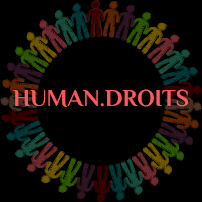Edited and Compiled by:
Ritika Sharma
Ritika Sharma is a Human Rights Advocate focused on international advocacy and the SDGs. She is the Founder of HUMAN.DROITS and holds an LL.M. from the Geneva Academy, Switzerland (2023–2024) with a specialisation in international humanitarian law and human rights, and a B.Com LL.B. from Panjab University, India. She can be contacted at ritika4523@gmail.com.
Sahildeep Singh
Sahildeep Singh is the Research and Project Coordinator at HUMAN.DROITS and Guest Faculty at the University of Delhi. He holds an LL.M. in Criminal and Constitutional Law from NLU Delhi, India. He can be contacted at sahildeep.singh22@nludelhi.ac.in.
Researchers
Shefali
Shefali is an Advocate and a researcher. She holds a B.A. LL.B. from University Institute of Legal Studies, Panjab University, Chandigarh, India. She can be contacted at shefali19071@gmail.com.
Nileena Banerjee
Nileena Banerjee is an undergraduate law student at the National University of Advanced Legal Studies (NUALS), Kochi. She can be reached at nileenabanerje@gmail.com.
Akansha Gupta
Akansha Gupta is a Research Scholar at Christ University (Delhi-NCR), India. She has worked as an Assistant Professor at Pendekanti Law College, Hyderabad. She holds an LLM degree from Nalsar University of Law and can be contacted at akansha.gupta@res.christuniversity.in.
Saugat Subedi
Saugat Subedi is an undergraduate law student at Prithvi Narayan Campus, Tribhuvan University, Nepal. His academic interests focus on International Humanitarian and Human Rights Law. He has participated in several national and international moot court competitions, earning recognition for his advocacy and research skills. He can be reached at saugatsubedi04@gmail.com.
Amjad Riaz
Amjad Riaz is an Associate Lawyer at She-her, Pakistan, specialising in human rights cases involving GBV, sexual violence, harassment, and guardianship. He can be reached at amjadriaz3895@gmail.com.
Citation Researcher:
Raktim Kundu
Raktim Kundu is an undergraduate law student at Symbiosis Law School, NOIDA, India. His academic interests align with Constitutional Law. He can be reached at raktimk605@gmail.com.
The Report also includes an analysis of sexual violence in conflict settings and highlights a few case studies drawn from three significant South Asian conflicts: the Sri Lankan Civil War, the Bangladesh Liberation War of 1971, and the ongoing Myanmar conflict. These case studies illustrate how sexual violence is used as a weapon of war, often targeting women from marginalised ethnic, religious or linguistic communities, and how international law and human rights mechanisms fail to fully address their needs.
To address these challenges, the Report provides solutions and recommendations. It advocates for inclusive justice mechanisms, the introduction and amendment of discriminatory legal frameworks and the stringent implementation of the laws and policies that are sensitive to the intersectional realities faced by women in the respective South Asian countries. The Report also calls for the active involvement of grassroots organisations and NGOs that work at community levels. These actors are important in recognising local intersectional identities and can aid in offering a survivor-centred support and policies.










%20in%20Myanmar.%20The%20image%20features%20a%20resilient%20woman%20standing%20firm%20in.webp)



0 comments:
Post a Comment